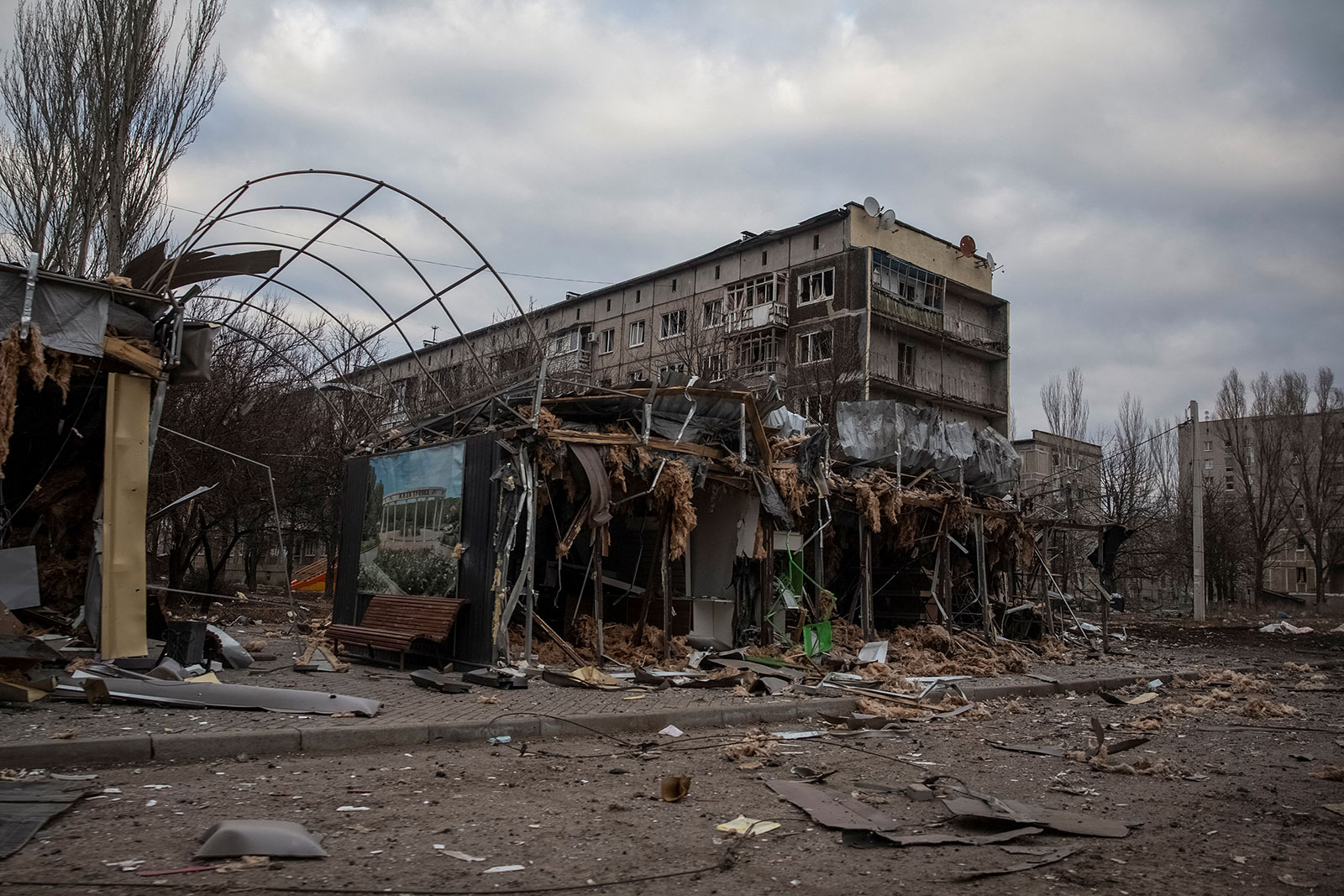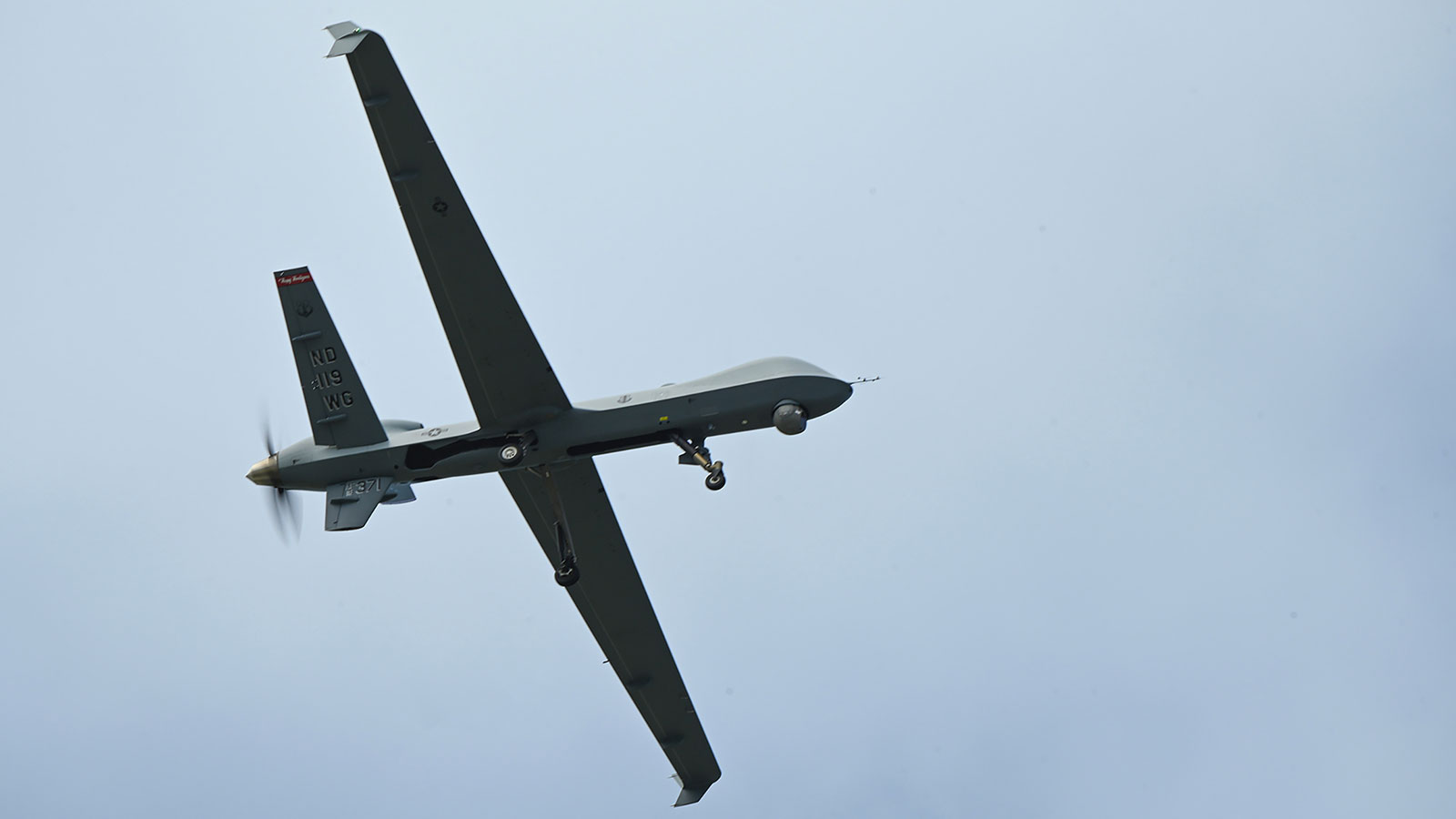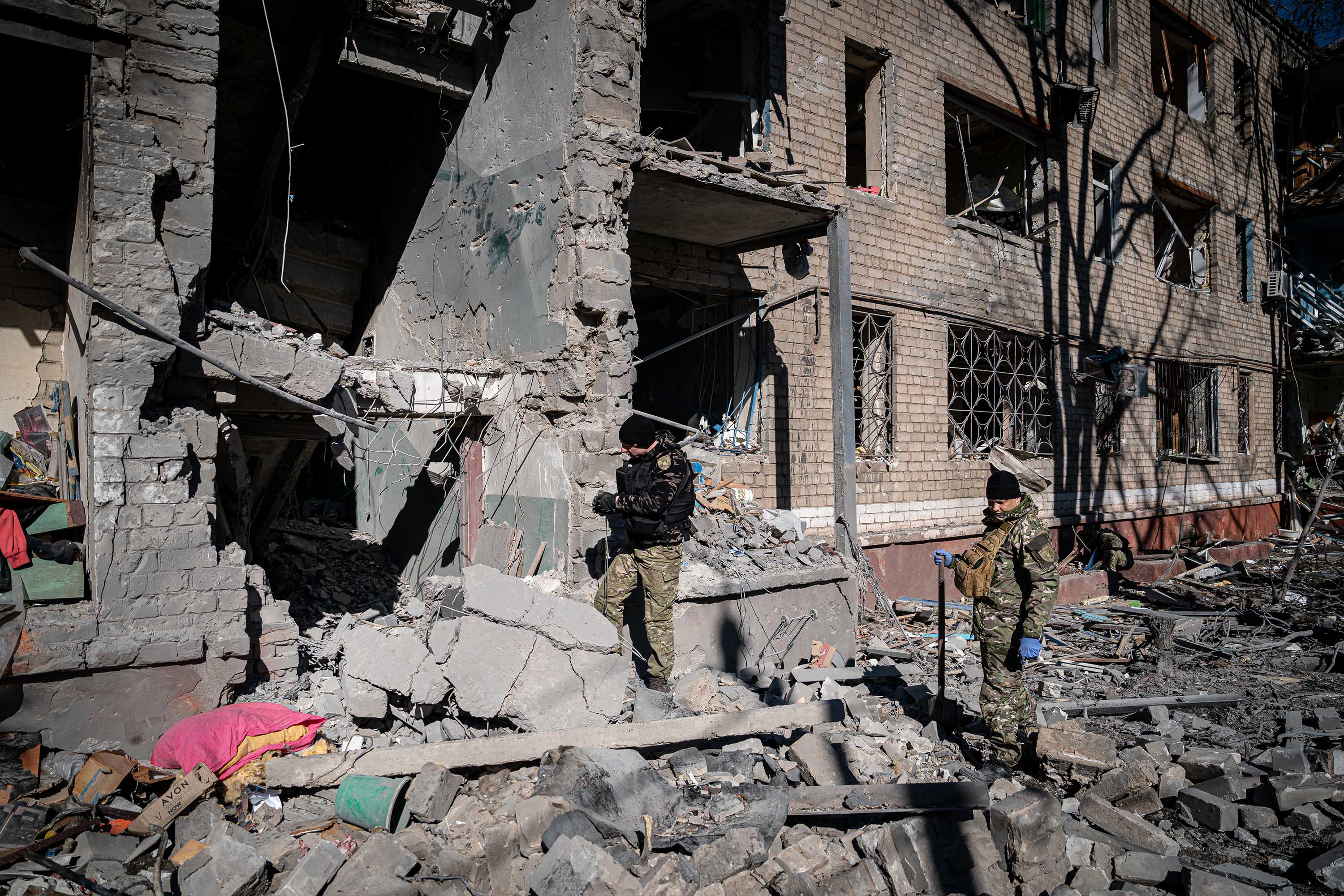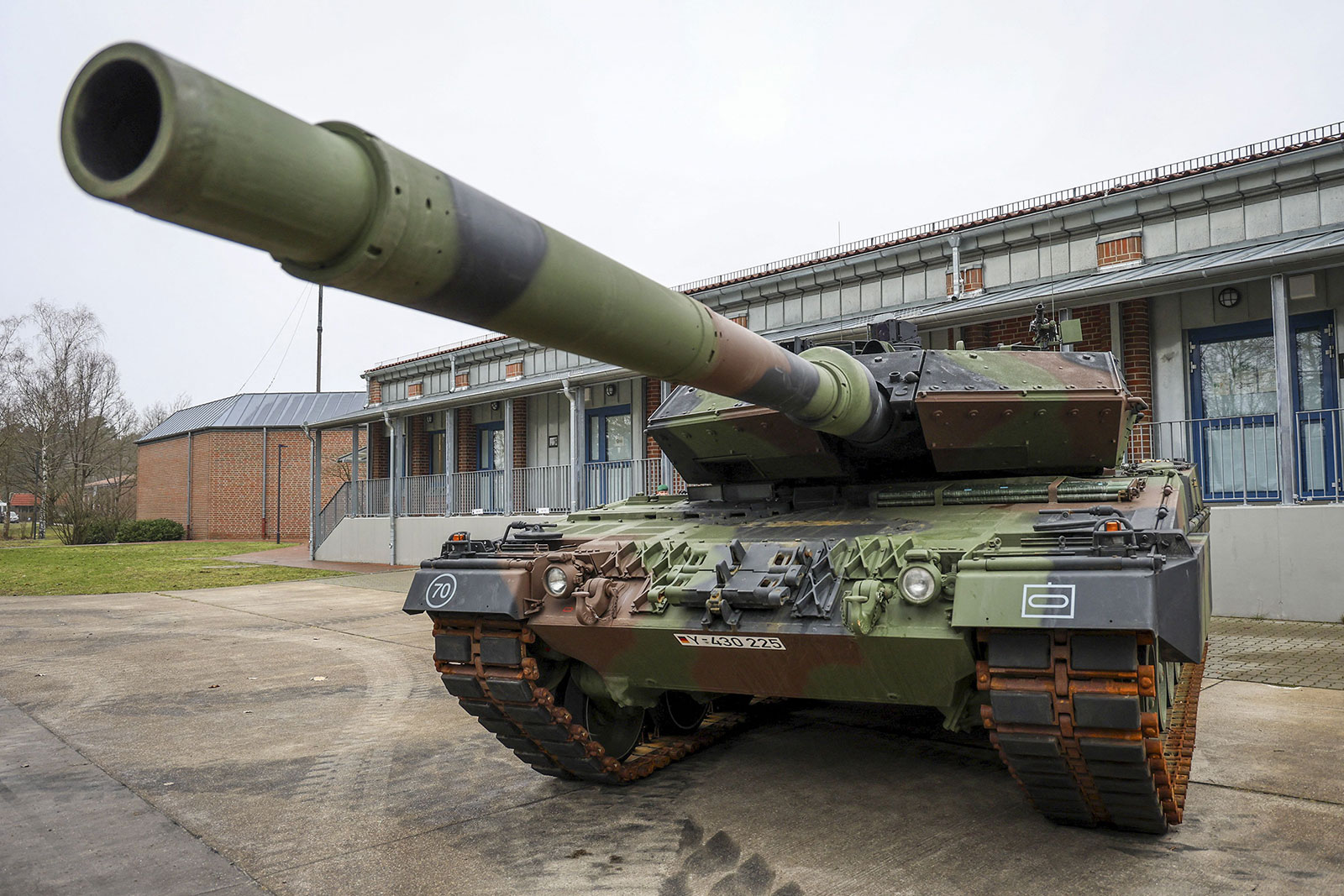
The intensity of shelling in the battle for the eastern city of Bakhmut has increased, but Russian infantry "cannot overcome our strongholds," a Ukrainian soldier currently fighting the city said Tuesday on Ukrainian national television.
"On our flank, the intensity of fighting has increased significantly in recent days — the southern outskirts of Bakhmut, Ivanivske. The enemy is trying to get to the area of the so-called 'airplane' in Bakhmut and cut the Kostiantynivka-Bakhmut road," said Yurii Syrotiuk, a grenadier with the 5th Separate Assault Brigade of the Armed Forces of Ukraine, referring to Bakhmut's now-destroyed airplane monument, which was a symbol of the city.
"That is why mega-intense fighting is constantly going on. But every time the enemy tries to attack us, we counterattack the enemy. However, it has started using a lot of artillery, MLRS and aircraft. The enemy aviation is working from morning til night," he said.
Syrotiuk said Russian forces have so far been unsuccessful at reaching the area of where the airplane monument once stood.
"Unfortunately, the front has already advanced quite close to the entrance to Bakhmut. The enemy is trying to attack from the direction of Ivanivske, but unsuccessful; we are constantly repelling them with our counterattacks, the enemy is trying to cut the Kostiantynivka-Bakhmut road at any cost — to encircle Bakhmut," he said.
Syrotiuk said that Russian infantry that cannot overcome Ukrainian strongholds are "pulling back, calling for their artillery, calling for aviation."
"And this is happening 24/7. About two weeks ago, I couldn't imagine that there could be even more intense fighting, but as it turned out, there could be," he added.








